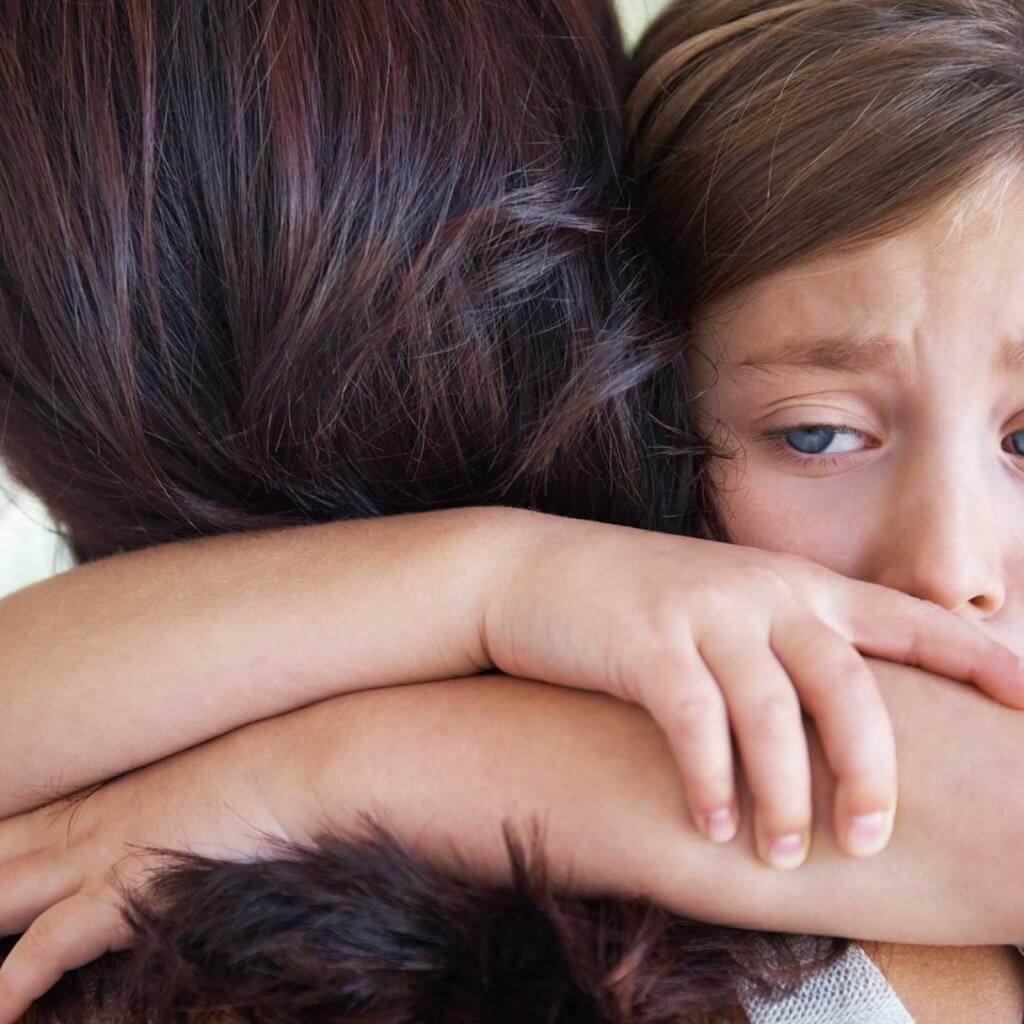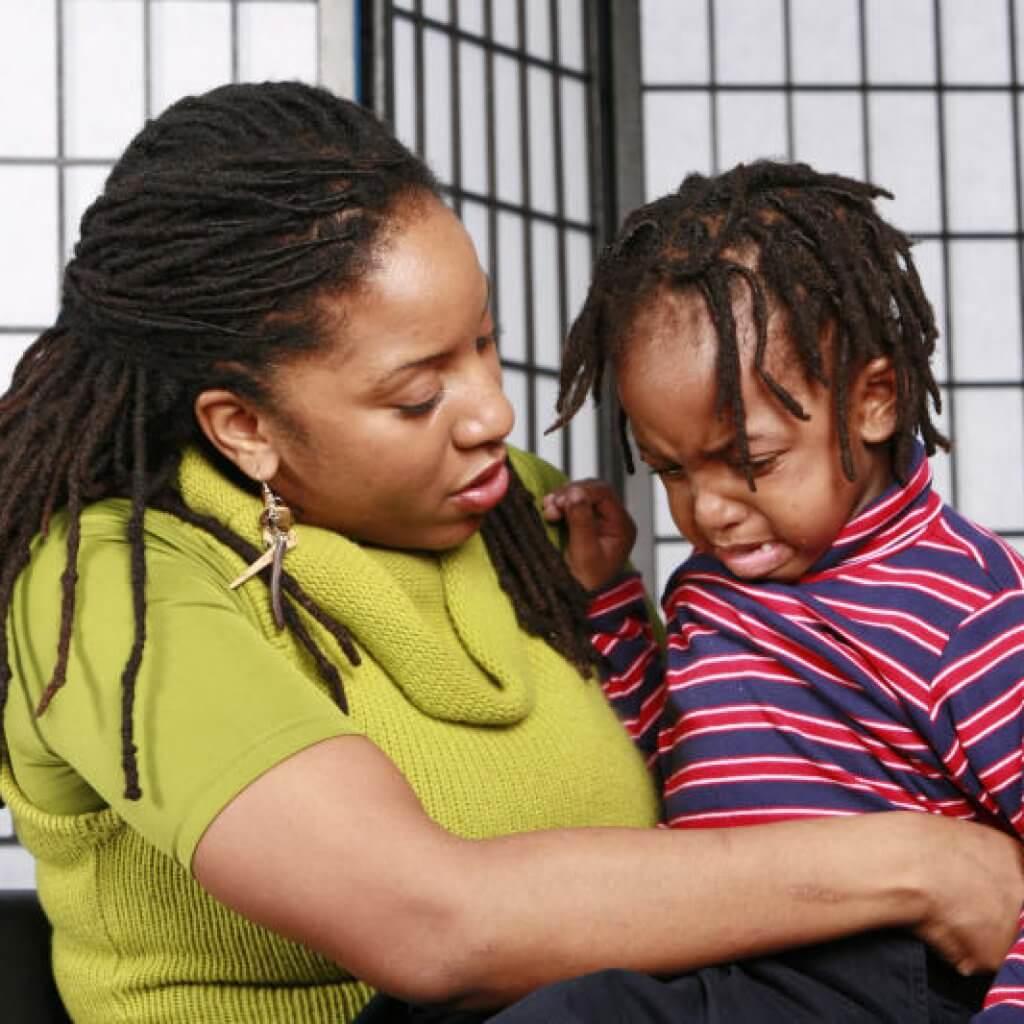When Little Kids Have Big Feelings

Life is an emotional roller coaster. You might experience absolute bliss one day or crushing sadness and disappointment the next. It doesn’t matter whether you’re an adult or a child; sometimes things can get pretty rough and tough.
While adults are (typically) used to the whirlwind of the everchanging highs and lows of life, children might not necessarily understand that there are good days and bad days—and even more so—that no matter the case, it’s ok to feel the way you do.
The Experience of Intense Emotions
When raising a young child, you might not always know what to do when your kid is experiencing intense emotions that they might find overwhelming—or sometimes even a little bit debilitating. Just because your child is experiencing feelings that we all find unpleasant (and it’s possible she’s experiencing these feelings for the first time), this doesn’t mean that there isn’t a way to help your child cope with what she’s feeling—even if it seems like there’s no hope.

No matter what the feeling is, children need to feel validated. It simply isn’t healthy for your child to experience any sort of emotional distress and let her go around thinking that it’s the wrong way to feel. And certainly, you don’t want your kid to think that possessing such emotions is a bad thing. Whether it’s anger, sadness, or shyness produced by anxiety—your kid needs to know that what she’s feeling is natural; and in order to do so she’s going to need your help and guidance to figure out that it’s ok to feel any and every emotion.
Try Not to Pass Judgement
Passing judgement on your child is the worst place to start regardless of what she’s feeling
You have to remember that no matter what your child is feeling—especially in the case of what you might deem “negative emotions”—passing judgement on your child is only going to exacerbate the issue. No one likes to feel judged for how they’re feeling regardless of age, but it’s important to keep in mind that some of these feelings might be new to your child, and that any initial judgement will most likely shape and could possibly even distort the way in which she processes and interprets what it is that she’s feeling.
Passing judgement will only confuse your child. If you’re trying to validate the emotions of your kid, the last thing she needs is to feel confused. What you’re trying to do when you validate your child is to make her see things as clearly as possible. You want to help her understand why she might be feeling a certain way, and you need to make sure that you’re providing for her a lens that allows her the ability to best comprehend the complexities of what she’s feeling and how she could possibly cope with her emotions.
If you pass judgment on her, it’s almost as if you’re telling her how and what she should be feeling. Judgements will only make your kid think that the emotion she’s experiencing is the wrong way to feel.
Try A Different Perspective
Viewing the situation with an objective eye doesn’t mean that you have to encourage her anger or sadness; it just allows your child the chance to process what she’s feeling without the intrusion of any immediate outside influence that might tamper with her initial understanding of a particular emotion.
Validating your child’s anger
Anger—especially when dealing with little kids—is definitely a tough one to work through without flying off the handle yourself. Your kid is without a doubt going to get angry at some point early on in life, and chances are that it might make you angry as well. But just because she’s angry, it doesn’t mean the situation has to be one full of frustration and mutual antagonization.
When dealing with an angry child, you don’t want the situation to escalate into a fight. You need to help her understand what anger actually is. It’s paramount to remember that you’re trying to teach her about the meaning of anger while also helping her understand the source of her anger. Once she understands what it is she’s feeling, you can go from there and try to mitigate the situation.
Remember the Empathy
When validating any emotion, empathy is key. Practicing empathy—especially in the instance of anger—is going to give your child a little bit of breathing room, and will allow her the chance to calm down without you aggressively trying to get her to do so yourself. If you combat your child’s anger with volatility before you attempt to understand where she’s coming from, you’re only going elicit greater frustration.
Let her know we all get angry, but you also have to let her know that there’s ways to deal with anger. In fact, even though helping your child get through a fit of anger can be tirelessly frustrating, it’s actually a great opportunity to teach her problem-solving skills. You can say “Look, I know you’re angry, but there’s a way to get through this. Let me explain to you how.”
Once she understands that there’s a method for coping with her anger, it allows her the chance to properly reflect on the situation. By showing her that it’s even possible to more or less think through her anger, you’ll have given her the opportunity for emotional growth. Wrestling with your child’s anger isn’t easy by any means, but teaching her to take a step back makes it so that she can properly and maturely process her feelings.
Stick with Moving Out of The Negative Emotions
One more important thing to remember though, is to make sure that empathy doesn’t lead her to think that acting out in rage is an acceptable behavior. Sure, let her know that anger is natural, but don’t let her think that anger is appropriate in every case. You don’t want your kid thinking it’s ok to act angry all the time just because you understand what it is to be angry.
Validating your child’s sadness
It’s absolutely heartbreaking to see your child overwhelmed with sadness. More than anything, you want to see your child live a happy life, but we all know that life can’t always be a bed of roses. Unfortunately, your child is going to come to this realization at some point—but on the fortunate side—you can be there to help her understand what it is she’s going through.
Again, empathy is incredibly important here—maybe even more so than a situation in which your kid is seeing red. Let her know we all get sad—that feeling sad it just a part of life. You might even want to tell her that when she’s sad, it makes you sad. When you explain this to her make sure you aren’t giving her the impression that you’re making the situation about you. It’s not your sadness you’re dealing with; it’s your child’s sadness. By telling her that her sadness makes you sad as well, she’s going to understand that she’s not alone—that she isn’t the first person to feel such a way. It can almost be seen as a moment of bonding, even. You’re telling her “See, I get sad too, it’s ok. You aren’t alone.”
It’s also important to remember that you shouldn’t brush off her feelings. While helping her comprehend that you feel sadness as well, you don’t want to make her feel as if by expressing your sadness that she should simply get over it. It isn’t a matter of saying to her “Well, I get sad too. Now that you know this you have no reason to feel the way you do.”
Give Them Time to Process
No matter how much it hurts to see your child filled with unbearable melancholy, you don’t want to rush her to feel differently. If you attempt to curb the sadness as soon as possible and tell her to simply just snap out of it, there’s a potential for more sadness and possibly even anger. By not allowing her to let her sadness run its course and pass, you’ll probably send mixed signals.

When you rush her, you’re giving her the impression that feeling the way she does is wrong. Rushing her will most likely just confuse her and make her feel misunderstood. That’s exactly what you don’t want in a situation like this. The whole idea is to make sure that she feels like others understand what she’s going through, and if you try to push her to feel otherwise, she might not think that you or anybody else is able to grasp exactly what it is she feels—ultimately creating an even greater sense and extent of sadness. Rushing her will just make her feel dismissed and maybe even lonely—and feeling dismissed and lonely certainly won’t make your child any happier.
Validating Your Child’s Shyness and Social Anxieties
Maybe you have a child who’s shy and a little hesitant to get out there and play with the other kids. You might notice she feels anxious in social situations and appears withdrawn while at the local park or maybe at one of her friends’ birthday parties. It’s not easy to see that your kid might have some trouble feeling comfortable during social interaction. Healthy social skills are important for children and adults alike, and no parent wants to entertain the thought that their child might end up feeling lonely and alienated as she matures.
If you do have a kid who experiences social anxiety, there are ways in which you can make her feel a little more comfortable. When discussing your child’s anxieties, the most important thing not to do is flat out tell her that she’s shy. By telling her she’s shy, you’re saying to her, “You’re different and what you’re feeling is abnormal.” You might want to try telling her she seems a little shy and anxious around other children, or simply even ask her if she feels anxiety or emotional stress when socializing.
Try and Be Understanding
It’s important that you see how she feels before you jump to any conclusions about her feelings towards social interactions. Maybe you’ll find she has no problem hanging out with the other kids at all. Just because she’s quiet around other children doesn’t mean that spending time with other kids is an absolutely dreadful experience; it might just mean she feels comfortable and doesn’t feel like she has to be constantly involved. She very well good be feeling just fine. Your child might be a little more introverted than other kids, and there’s nothing wrong with that.
The important thing to remember if you have a child who appears shy and anxious and you want to help her, is that by saying to her, “you’re shy and anxious” she’s most likely going to feel the very anxiety that you wish she wasn’t feeling. If you ask if she’s shy and she tells you she does feel that way, just ask her why. You have to understand why she feels the way she does before you can work with her to try and help her feel a little more comfortable.
Validating your child’s irrational fears
Is your kid afraid of the dark or scary monsters under the bed? Many children have all sorts of irrational fears but that doesn’t mean there’s anything wrong with them. As is the case with any other sort of fear (whether rational or irrational), don’t dismiss your kid right off the bat or tell her that she’s silly for feeling the way she does. Saying to her, “you’re ridiculous” isn’t going to make her feel any better. Dismissing her is only going to make her feel misunderstood, sad, lonely, confused—and it certainly won’t help her overcome any irrational fears she might have. You have to let her know that it’s ok to be scared and that she isn’t doing anything wrong by feeling the way she does.

What’s important here is that you stay calm and project an air of confidence that can passed on to your kid. If you’re kid is afraid of the dark, you can simply sit in the dark and calmly say, “See, here we are in the dark and nothing’s wrong.” Make sure she understands that you’re comfortable in any situation where she might feel frightened. If she sees that your calm and collected, she’ll eventually feel the same way. This is a case in which it helps to more or less lead by example.
Dealing with a child’s strong emotions can be difficult. It may even make you feel pretty emotionally distraught yourself. When you’re trying to help your child get through tough times—no matter the feeling—all you have to do is show her that you want to understand where it is she’s coming from. When you show that you truly want to understand your child and her emotions, she’ll be more likely to feel comfortable expressing herself and more willing to take your advice.







